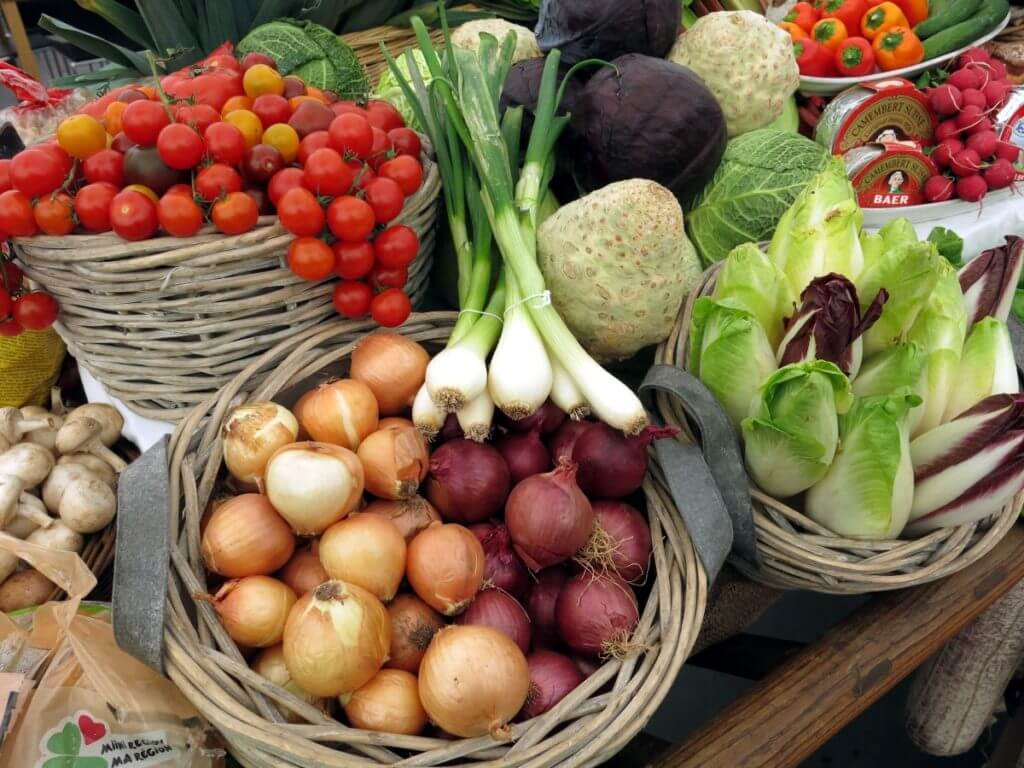
This spring, COVID-19 led Morris Hills Regional District and thousands of others to close schools and support students learning from home. Faced with this interruption, educators at Morris Hills knew they needed creative solutions to keep students motivated and engaged.
Morris Hills Regional District is a public school district in Morris County, New Jersey, that consists of two high schools: Morris Hills High School and Morris Knolls High School. The district began implementing Reading Plus, an online literacy program, during the 2019-2020 school year.
Aligned with the goals of supporting the community and keeping readers motivated, Reading Plus and Morris Hills held a contest: For each student who completed their Reading Plus assignments, Reading Plus would donate to LocalShare, a program that provides fresh food to those in need as part of the nonprofit Foodshed Alliance. 
The donation stems from a successful partnership between Reading Plus and Stacey Feiss, Title I reading specialist in the district.
“Stacey is one of the best,” said La’Keisha Ciprian, Reading Plus Customer Success Partner in Morris Hills. “She is so super supportive—of Reading Plus and of her students.”
Stacey Feiss, Title I Reading Specialist
Rolling Out a Reading Solution
When Stacey Feiss joined Morris Hills High School in August 2019, she was expected to oversee the usage of a program she knew nothing about: Reading Plus. Feiss decided to approach the task by taking the time to understand student and educator needs.
Feiss personally administered the Benchmark 1 assessment in each of the English classes at her school. After 1,000 students were assessed, Feiss held an in-service session for teachers to discuss the scores and come up with a game plan. They decided that students would take time at the beginning of every English class to work on Reading Plus. Some teachers started class with quiet music to get the kids in the zone and remind them to work on the program. Teachers and students gradually developed a routine with the program and started seeing results.
The Value of Student Input
When it was time for the mid-year Benchmark 2 assessment, Feiss and her colleagues decided to survey their students about how Reading Plus was going.
“The district wants students to feel like they’re part of the process,” said Ciprian. “They’re all about partnering with the students to find out how they can help.”
Some highlights from the students’ responses include:
“The reading comprehension practice really helps me, as well as the guided reading. I read significantly faster now with better comprehension.”
“The parts that I find useful or valuable are the reading window. It has helped to increase my speed and helps my eyes stay on track. It helps me to create the habit of staying on the correct line.”
“At first I thought the guided line was tedious. Then, I realized that it helped me focus my reading and made my reading so much easier. I comprehend the text better, and I am more focused when I read.”
[Note: The Guided Window is a feature of Reading Plus that develops efficient reading habits. Learn more here.]
“We know things are better when we communicate with students,” Feiss said. “We asked them, ‘You tell us what is working,’ and we guided them on how to give useful comments.” The majority of students responded that they felt they were doing too much Reading Plus. So Feiss and her team listened to the students and adjusted their approach.
Motivation: The Key to Reading Success
Students in Morris Hills worked on Reading Plus for more than just a grade. Although Feiss had explained the purpose of the program to her students, she said it helps to provide them with some external motivators.
Some examples of Reading Plus motivation contests include a monthly “Do It for the Donuts” challenge: If a whole class completed their assignments, Feiss delivered a box of Munchkins to them.
 “Do It for the Donuts” motivation contest graphic made by Stacey Feiss
“Do It for the Donuts” motivation contest graphic made by Stacey Feiss
Feiss awarded prizes to students based on their benchmark performance, assignment completion, and number of lessons completed. Free hamburger card prizes were even delivered by the principal. Classes won a cookie party if all students were “smart cookies” and completed their Reading Plus assignments.
 “Smart Cookies” motivation contest graphic made by Stacey Feiss
“Smart Cookies” motivation contest graphic made by Stacey Feiss
COVID-19 and Shifting to Remote Learning
The week that Feiss was planning to celebrate a class’s Reading Plus success with a pizza party, they heard the news that the district would be closing due to COVID-19.
The shift to remote learning meant that the Reading Plus requirements and challenges had to be more flexible. Some students had to care for siblings, some didn’t have enough computers at home, and many more experienced other challenges.
Without students in the classroom, motivation contests had to look a bit different. Feiss felt it was important—for herself and her students—to show concern for their community. Knowing that many people were food insecure during the COVID-19 crisis, she decided that the next motivation contest would involve supporting local food pantries.
A Contest to Support the Community
With the devastating economic effects of the pandemic, food pantries had been struggling with limited volunteers and an increase in local need. Feiss chose to partner with LocalShare, a program based in New Jersey that provides fresh food to those in need by partnering with farms, volunteers, and food pantries.
Feiss and Ciprian came up with the idea that Reading Plus would donate to LocalShare on behalf of the students in Morris Hills who completed their Reading Plus assignments during the month of May.
The impact of the donation would be personal for Morris Hills students. “We feed a lot of our own families in this building,” said Feiss. Without school breakfasts or lunches, some of her students would be hungry.
When LocalShare Coordinator Christine Parauda received the donation from Reading Plus and Morris Hills, she expressed her gratitude:
“Thank you for this terrific project connecting reading for a cause and increasing awareness about food insufficiency. The money raised will go toward our mission of providing access to nutritious, fresh food for all. With so many neighbors in need currently, we are delighted to accept this generous donation to serve them.”
School’s Out and Looking Ahead
After the success of the donation contest, Feiss helped her students wrap up the school year. While at home, students successfully completed the end-of-year Benchmark 3 assessment to track their progress. Of the 922 students who completed all three benchmarks, 14 percent more were reading on grade level than had been at the beginning of the year.
Morris Hills Regional District Reading Plus Benchmark Report

As for next year, Feiss has been tasked with developing a plan that could work either in school or virtually–or a combination of the two. It’s no small feat. Her district is still determining if students will be returning to classrooms in the fall. One of Feiss’ goals for next year is to help other educators see the impact that literacy has on all academic areas, not just English class. Fortunately, she has many more motivation ideas up her sleeve to keep students engaged.




